Name (English): Pak Sing Ancestral Hall
Name (Chinese): 百姓廟
Category: Historical Site
Address (English): 42 Tai Ping Shan St, Sheung Wan
Address (Chinese): 上環太平山街42號
Address Google Map Link: https://goo.gl/maps/D2rtYNRMysiMDbSX8
Address longitude and latitude: 22.28533628749467, 114.14766658126732
Nearest MTR Station: Sheung Wan MTR Exit A2
Nearest MTR Station Google Map Link: https://goo.gl/maps/XCVGmg7imdbCxpxe7
Nearest MTR Station longitude and latitude: 22.286212626680655, 114.15212888868591
How far from the nearest MTR Station: 8-minute walk from Sheung Wan MTR Exit A2
Opening Hours:
Monday 08:00 – 17:00
Tuesday 08:00 – 17:00
Wednesday 08:00 – 17:00
Thursday 08:00 – 17:00
Friday 08:00 – 17:00
SAT 08:00 – 17:00
SUN 08:00 – 17:00
Recommended Time to Visit: Anytime during opening hours
Accessibility Note: May need to climb up the stairs
Painted in fiery red and decorated with giant incense spirals hanging from the ceiling, the Pak Sing Ancestral Hall on the slope of Tai Ping Shan Street in Sheung Wan is the locals’ go-to place to get their prayers answered. But the temple comes with a saddening story on its establishment dating back to the 1850s.
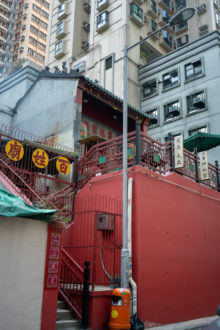
The Treaty of Nanjing in 1842 not only ceded Hong Kong Island to Britain but also stipulated 5 coastal cities in China to be opened to foreign trades, meaning the British merchants could export the opium through 4 more ports other than the one in Guangzhou. They thought it would stimulate the development of the colony for long-term economic gains but the plan laid in tatters, as Shanghai overtook Hong Kong in trades.
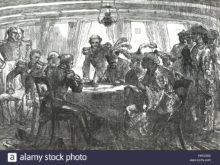
The British of course would not give up the Island easily and were seeking ways to recover the economy. The turning point was the Gold Rush in California in the 1850s, which needed a huge amount of manual labor for the gold mining. Given the fact that human trafficking was illegal in China, so the British money seekers took advantage of the colony and traded Chinese through the Island for profits.
The Chinese miners, on the other hand, suffered severely from the hardships, diseases, racism and accidents, and many lost their lives before they returned home. It was always a Chinese tradition to be buried in their hometown. The Pak Sing Ancestral Hall was where the families of the miners asked for help in storing the corpses temporarily for sending back and also served as a memorial place to commemorate the spirits of the missing ones praying for a better afterlife for them. Dying at home was another Chinese taboo, so many dying souls would get kicked out by their landlords and spend their last phase of life at the Temple.
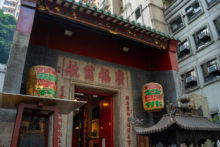
But the large mix of the dead and dying huddled together caused serious hygiene issues at the place, which further pushed the construction of the first hospital for the public in the 1870s – Tung Wah Hospital, to help cure the sick poor locals. It is still in business at its original site, adjacent to the temple.
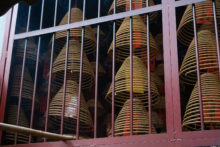
There are always two sides to every coin. The colonial government definitely exploited the Chinese for their own interests, but it is also hard to turn a blind eye to the fact that the move established a solid foundation for the growth of trades along with Nam Pak Hong, and later brought prosperity to the city and the later generations. Lessons learned from history – what is more important is to avoid making the same mistakes and to take broader perspectives into account when making decisions. The outcomes will still remain a myth until decades later, but at least something negative yet foreseeable could be prevented.
Calling all singles! If you ever wonder when you will meet your true love, the Pak Sing Ancestral Hall, perched on the slope of Tai Ping Shan Street in Sheung Wan might provide you with an answer. With its entrance painted in fiery red and decorated with giant incense spirals hanging from the ceiling, the temple is known for getting love prayers answered, which even attracts local celebrities to bow their head to seek good fortune.
This Chinese folk religion temple houses a few local deities, ranging from the legendary Buddhist “Mad Monk” – Ji Gong, who was deemed to be helping the vulnerable with his supernatural power, to the most important Two Gods of Love – HeHe Erxian, bestowing blessings on marriages. The real question is – how to ask for fateful encounters? Apart from making incense offerings, you can request prayers from the temple monks who will then offer you a red bracelet string that might bring you true love in the future!
But the temple comes with a saddening story on its establishment which dates back to the 1850s. Many Chinese immigrants resided in Hong Kong in search of better lives. It was always a tradition to be buried in their hometown, and the Pak Sing Ancestral Hall was then built to serve as a memorial temple to commemorate the spirits, as well as to help store the corpses temporarily for burials. “Pak Sing”, meaning the “people” in Chinese, explains why it is the temple for the people.
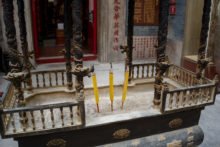
#temple #discoverhongkong #explorehongkong #visithongkong #hongkongtravel #ilovehongkong #heritage #hongkongheritage #culturetrip #hongkongculture #hkhistory #hongkonghistory #hongkongstory#instagrammable #hongkonginsta #instahk #visualhongkong #hkphotography #awesomehongkong #hkinstagram


